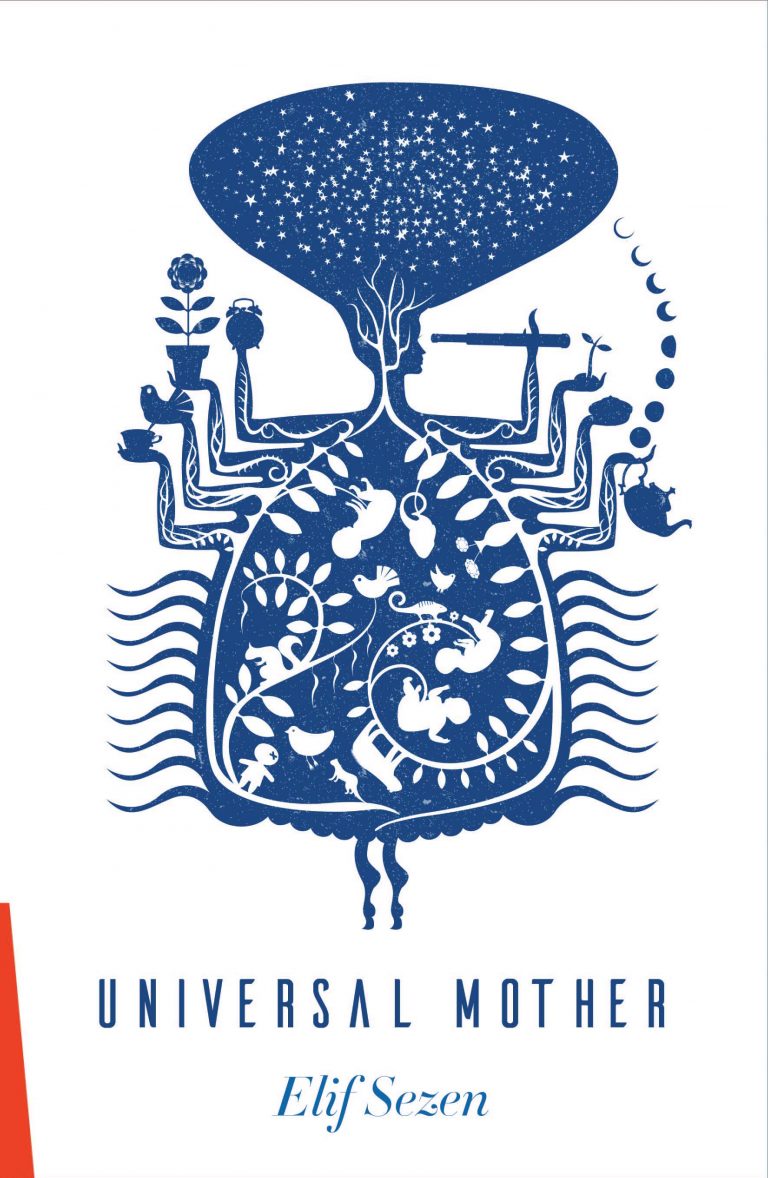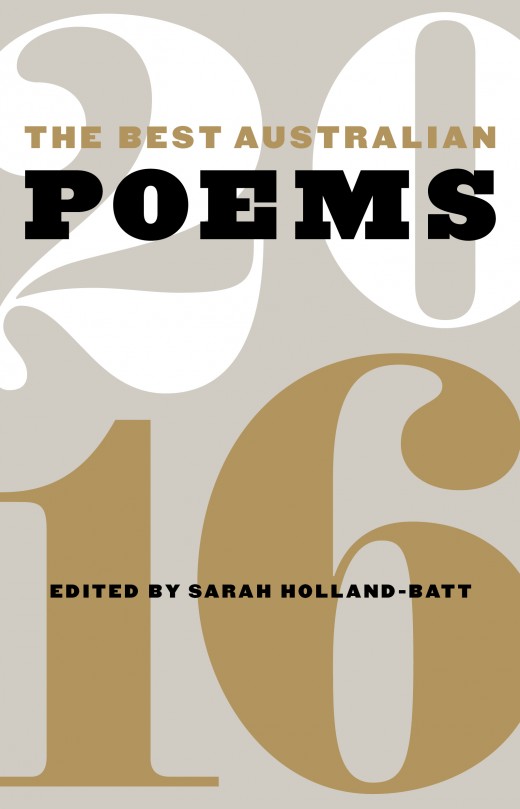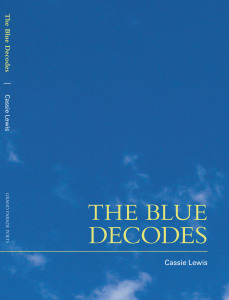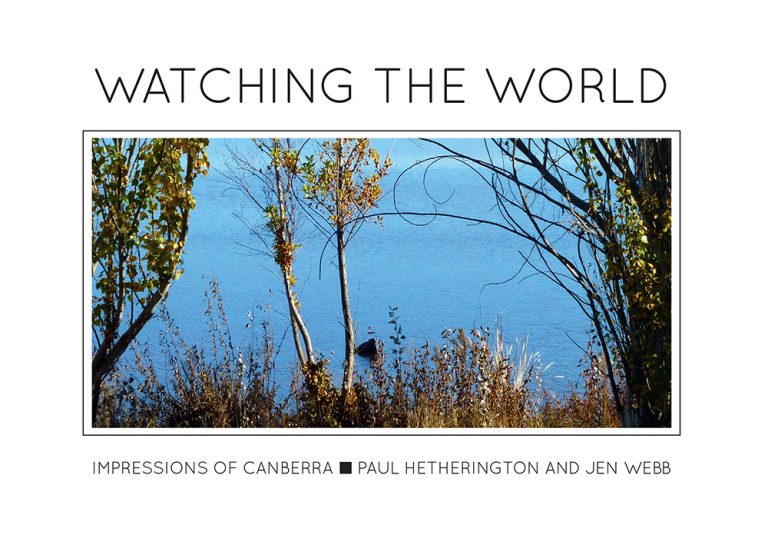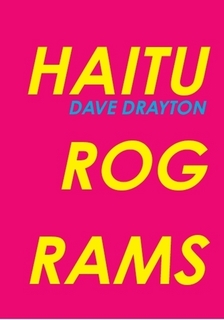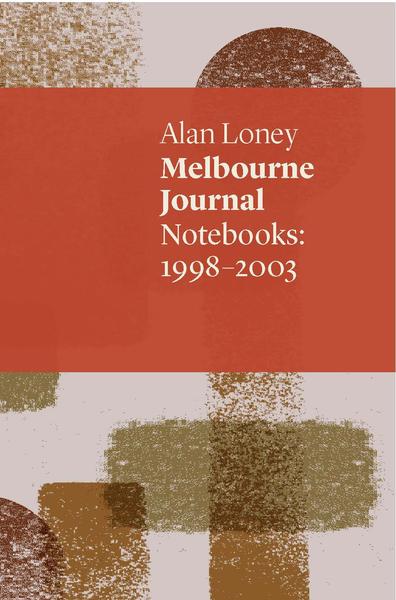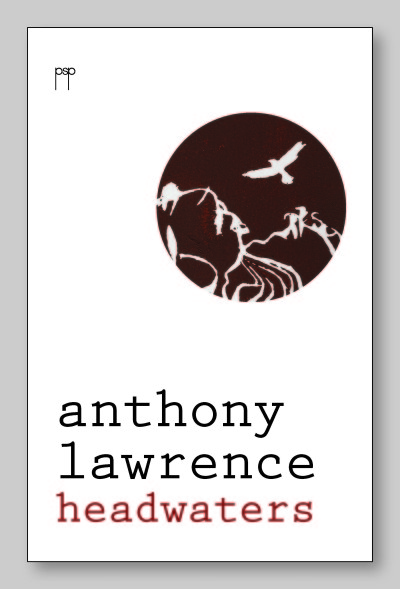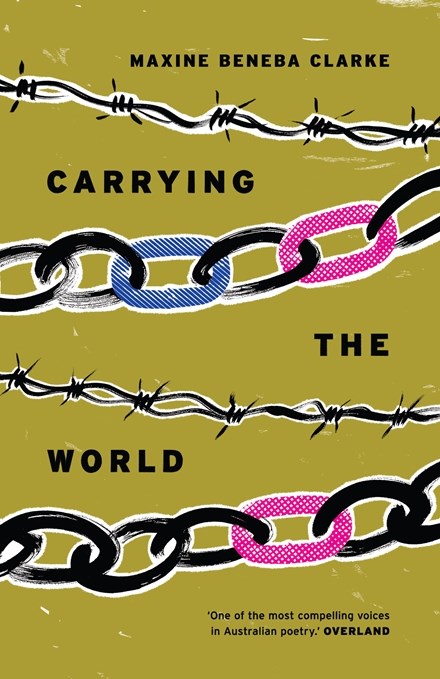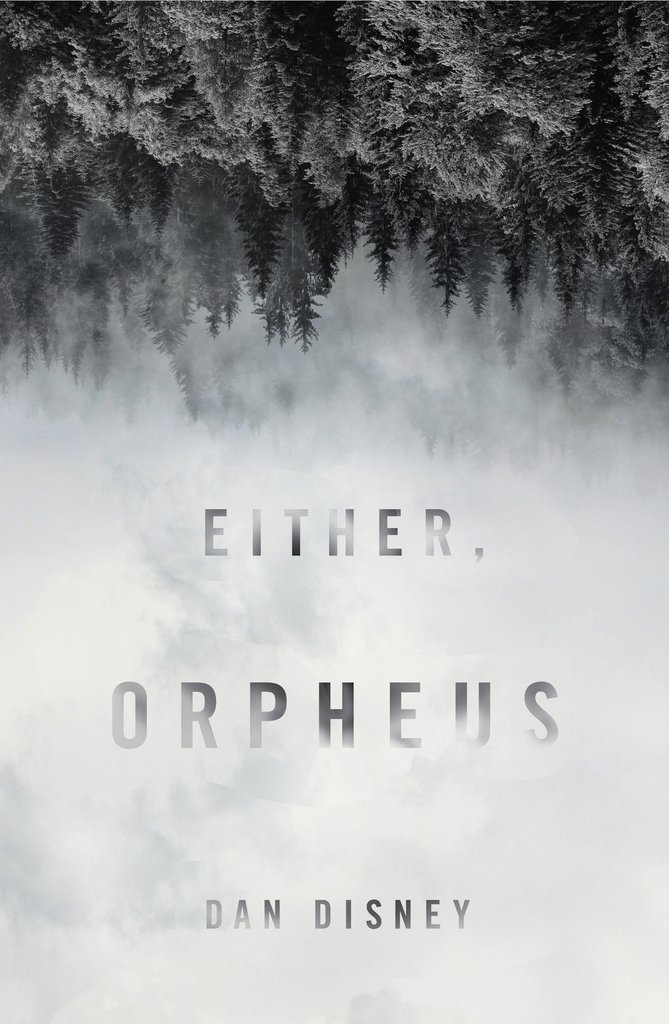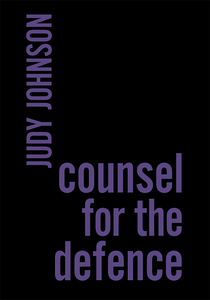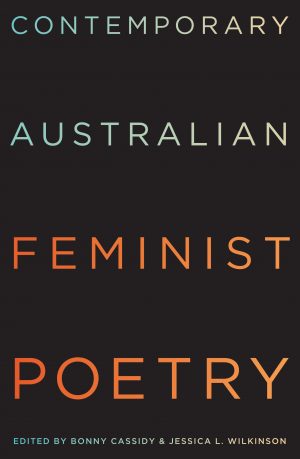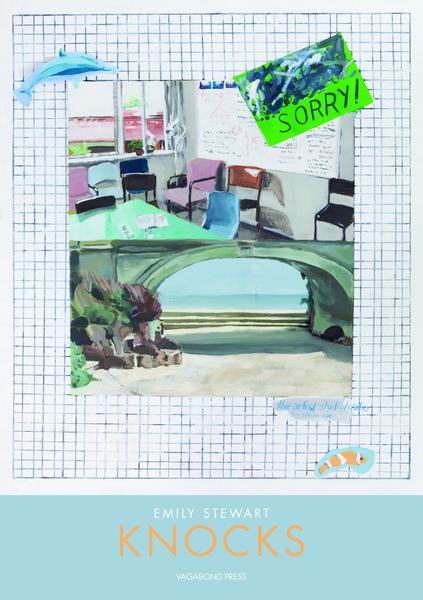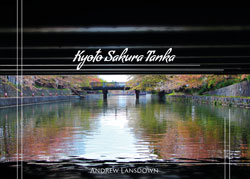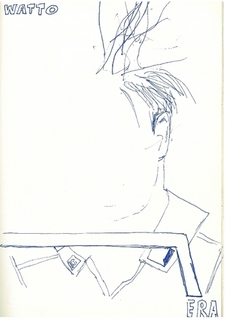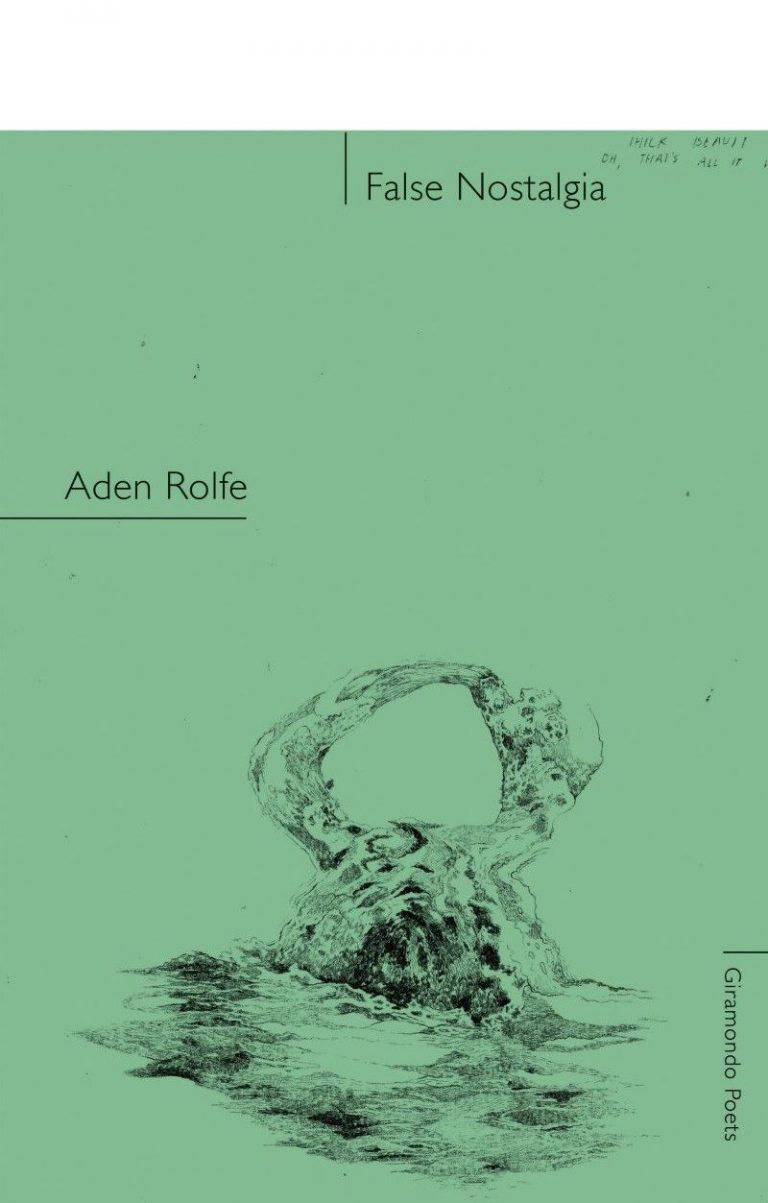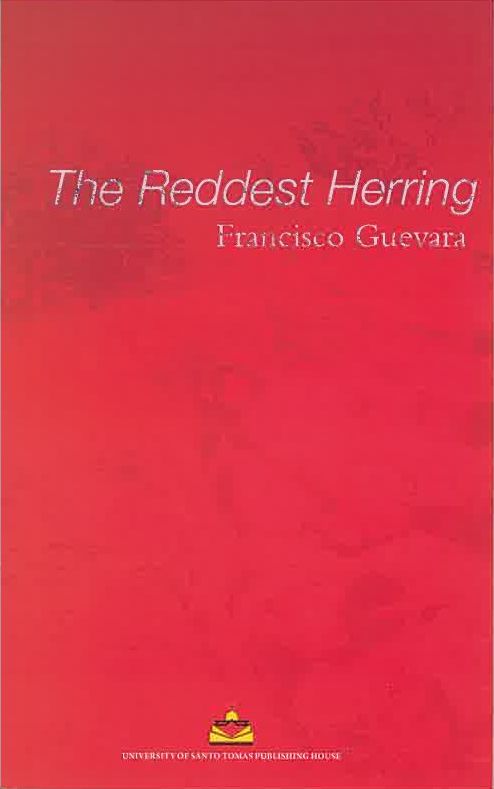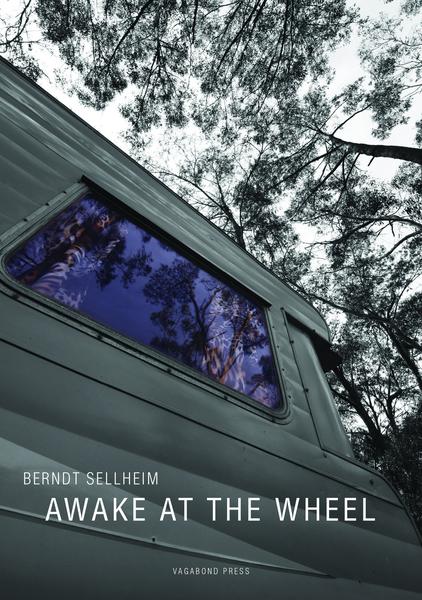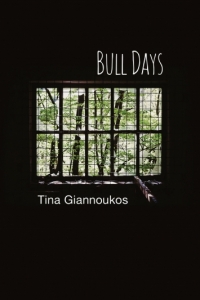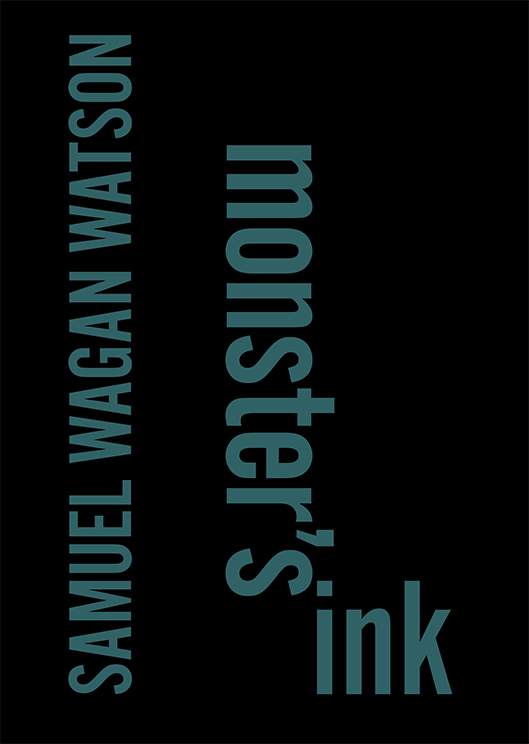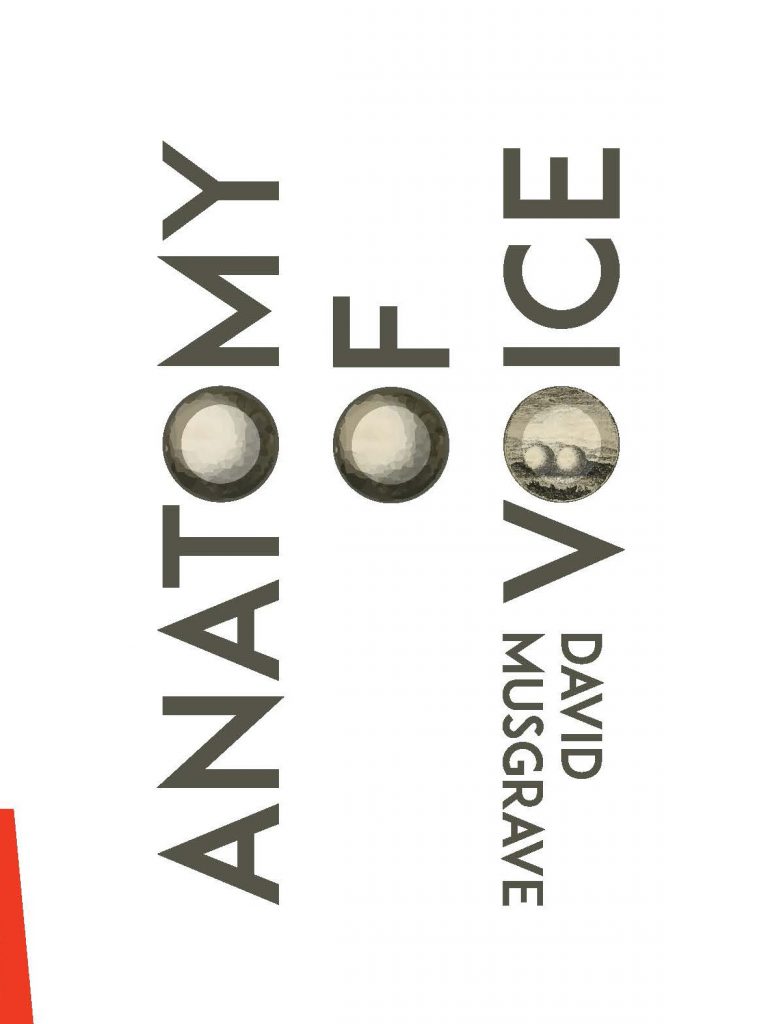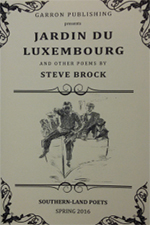BOOK REVIEWS
Review Short: Elif Sezen’s Universal Mother
There is something delicious about a collection that doesn’t open itself up to the reader on a first or even second reading and yet compels them to come back to it, something delightful about lines that lodge themselves in your brain and demand a third, fourth, fifth reading to reunite them with the poems they come from.
Paul Munden Reviews The Best Australian Poems 2016
In her introduction to this anthology, editor Sarah Holland-Batt claims for the work ‘a colloquialism, contrarianism and playfulness that separates it from its counterparts in the northern hemisphere’. Being hitherto more familiar with that northern hemisphere, this reviewer’s critical interest was immediately aroused.
Liam Ferney Reviews Cassie Lewis
Based on the poems in The Blue Decodes, Lewis is an artist who values silence as much as noise. The book’s ninety pages, which include a number of poems published in her chapbooks, represent well over two decades’ worth of work which provides an interesting purchase on the question of why write poetry in the first place, particularly if it seems like an adjunct to an already full life?
Alice Allan Reviews Watching the World: Impressions of Canberra
What is it about Canberra that invites so many definitions? Comparing where we live with where we don’t is an Australian fixation, but there’s a specific energy to the way that people with a connection to Canberra go about this – they will start deriding or defending the place minutes after you’re introduced.
Michael Aiken Reviews Dave Drayton
Dave Drayton’s Haiturograms is a brief but confounding volume, available as a free PDF download and print-to-order book from Sydney-based SOd press. Like Drayton’s other work, HaiturogramS is driven by formal constraint and innovation within that constraint.
Owen Bullock Reviews Alan Loney
The publication of these notebooks completes the series that begins with Sidetracks – Notebooks 1976-1991 (Auckland University Press, 1998) and ends with Crankhandle – Notebooks November 2010-June 2012 (Cordite Books, 2015), the latter winning the Victoria Premier’s Literary Award for Poetry 2016.
Review Short: Holly Isemonger’s Deluxe Paperweight and Jessica Cham’s premium pastoral poetry
Holly Isemonger is a promising new talent and it will be interesting to see her art develop from here. Though this chapbook doesn’t achieve the full potential of its ideas, Isemonger manages to showcase a surprisingly broad range for such a short collection. Like Isemonger, Cham’s poetry is juxtaposed against images, though here they appear to be the author’s original photographs. The poem is written seemingly as part of an email to independent filmmaker, musician, and actor Vincent Gallo.
Review Short: Anthony Lawrence’s Headwaters
Headwaters is Anthony Lawrence’s fifteenth collection and his first with Pitt Street Poetry, whose website memorably suggests the humble reader should ‘Find yourself a shot glass, take a seat, and take a shot.’ This is the first time I’ve seen a publisher suggest their books be read thus, though in their defence, they do so in relation to lines from Lawrence’s ‘Wax Cathedral’. Ah well, when in Rome … a thimble of Lagavulin scotch as required and I’m finally ready to review. Non-drinkers may read on as they are.
Review Short: Maxine Beneba Clarke’s Carrying the World
At the launch of Carrying the World, Maxine Beneba Clarke shared the mic with spoken word performers who were part of her decade long journey in poetry. The poignancy of Clarke’s gesture demonstrates how embedded she is in a literary community that erases the distinction between ‘high art’ (page) poetry and the spoken word.
Alex Kostas Reviews Dan Disney
Is the contemporary world really as confused and as doomed as it seems? In his latest book of poetry, either, Orpheus, Dan Disney tends towards the affirmative with his ‘elegiac anthroposcenes’ – assaulting scenes of twenty-first century demise – but he does not attempt to grapple with the problem alone. Instead he enlists the help of a stunning amount of other writers and thinkers.
Review Short: Lisa Jacobson’s The Asylum Poems and Judy Johnson’s Counsel for the Defence
The prettiness of the language is a curious choice, though, given the raw horror of the subject matter. Closely observed grotesque details, like the father yelling ‘Towels! ’ as he carries his bleeding brother over the threshold of their Iraqi home, are among the sequence’s most satisfying moments.
Siobhan Hodge Reviews Contemporary Australian Feminist Poetry
Contemporary Australian Feminist Poetry presents a compelling cross-section of feminist voices, experiences and engagements in Australia, picking up from where Kate Jenning’s 1975 feminist anthology Mother, I’m Rooted: An Anthology of Australian Women Poets left off.
Melody Paloma Reviews Emily Stewart
Emily Stewart’s Knocks operates somewhere in between these two ideas. Certainly, Stewart is part of a new wave of avant-garde poetry in Australia, and collaborative prowess is surely at the collection’s centre; but it is difficult to attach Stewart to just one particular community.
Erin Thornback Reviews Andrew Lansdown
Through a series of visual and textual explorations, Andrew Lansdown’s Kyoto Sakura Tanka creates a striking depiction of the bicameral, separating his collection into kami no ku (the poet sees) and ashimo no ku (the poet wonders). The fundamental basis of Lansdown’s series is rooted in the Japanese tanka, or traditional waka: a five-line piece of poetry divided into mortas, or syllable counts, of 5/7/5/7/7.
Duncan Hose Reviews Nick Whittock
Whatever happened to the Goddam enlightenment? I understand that this grandiose Western intrigue has moved dialectically through succeeding twilights if not dark ages, and the twentieth century was a sort of apocalyptic culmination or quickening of this protracted ‘event’ with the splitting of the atom, the holocaust and turning the idea of the world into a globalised tele-visual circus of war and business.
Review Short: Maged Zaher’s the consequences of my body
This is love poetry for the Tao Lin generation. The consequences of my body offers a discourse on desire as it is mediated by the electronic interfaces that obviate the need for ‘skin to skin contact’ even as they turn out to exacerbate it: email, Skype, Facebook, Netflix (and chill).
Review Short: Aden Rolfe’s False Nostalgia
Aden Rolfe’s False Nostalgia presents a collection of memories and corresponding vagaries of forgetting, which stimulate and unsettle in unpredictable and oblique turns of thought and phrase. His work includes philosophical, lyrical and confessional voices, the overall discourse serving to recreate and recover highly original self-objects in time and space.
Stuart Cooke Reviews Francisco Guevara
At the time of his death, Francisco Guevara – ‘Kokoy’ to everyone who knew him – was becoming a unique, unwavering presence in contemporary Filipino poetry. An unlikely graduate of the Iowa Writers’ Workshop (reports suggest that he was repeatedly stymied by the rituals of the workshop lyric), in 2010 he returned home to the Philippines to take up a position at De La Salle, one of the country’s most prestigious universities.
Review Short: The Two Romanticisms, and Other Essays: Mystery and Interpretation in Romantic Literature
Romantic poems are elusive creatures. Exhibit A is William Blake’s ‘The Blossom’ (1789), in which a mysterious voice asks a pretty robin, a blossom, and the reader, to ‘seek your cradle narrow’. Perhaps by the necessity of the uncanny danger of meaning, readings of Romantic poetry have always been accompanied by disputes about Romanticism as a movement. These conflicts seem to encompass an entire political shift in an age of revolutions.
Review Short: Berndt Sellheim’s Awake at the Wheel
In Awake at the Wheel, Berndt Sellheim’s debut collection of poems, Australia is imagined in gothic terms, from the eerie and persistent presence of the ‘bushland’s dark parchment’ to the bones and ghosts which haunt an endless landscape. An homage to country, there is little innocence embedded in these poems of insides and outsides, which speak not only to a transforming sense of self but also to an environment that ceaselessly, and often uneasily, shifts.
Review Short: Tina Giannoukos’s Bull Days
The first poem of Tina Giannoukos’s second collection ends with the line, ‘In space I hold the horn of plenty’. This reference to the classical symbol of abundance foreshadows the poetic landscape that follows in Bull Days, a volume teeming with external allusion and internal reverberation.
Dave Drayton Reviews Zoe Dzunko and Sam Wagan Watson
Zoe Dzunko’s beautifully designed Selfless, published by TAR Chapbook Series, is similarly immersed in appearances and reflections – both mirror images and the act of rumination – of her many selves.
Graeme Miles Reviews David Musgrave
This new, book-length poem by David Musgrave remembers the life, and especially the voice, of Bill Maidment, who taught English Literature at the University of Sydney. Firmly in the tradition of poetic memorial, and given the character of its protagonist, it becomes a book concerned with the broader memory of a culture and the ways that a human being can inhabit it.
Review Short: Chapbooks by Mike Hopkins and Steve Brock
Displaying an impulse that is communitarian and geographic by turns, Mike Hopkins’s Selfish Bastards and Other Poems, and Steve Brock’s Jardin du Luxembourg and Other Poems address the quotidian of the present under the notion that place-based does not necessarily mean place-bound. Brock’s itinerary darts from France to Barcelona, Madrid to San Francisco, to arrival at the Hollywood hotel, taking readers beyond the physical boundaries traditionally ascribed to place and ‘on a walking tour / a literary one’.

